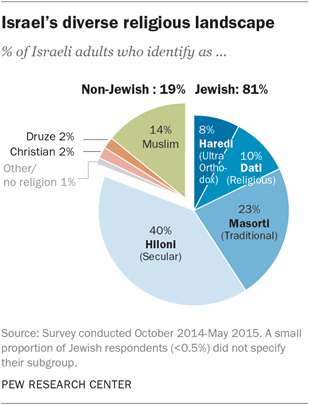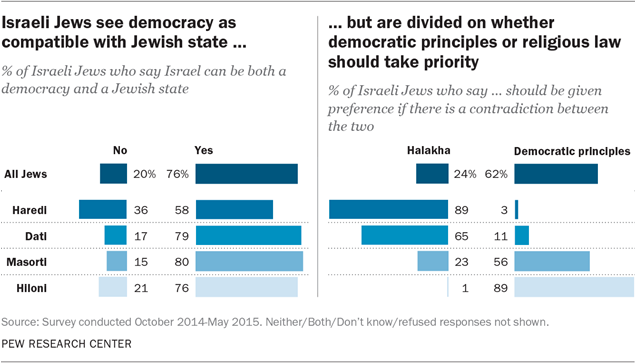You have to be a Jew by one set of criteria before you can even ask about tribal affiliation according to the other. The child of a gentile woman is not a Jew and therefore cannot be a member of a tribe. A man who has a child by a non-Jewish woman is not considered to have fulfilled the mitzvah of Pru U'Rvu and the child has no connection with him (the child is not Jewish). This is analogous to the case of the man who blasphemed in the midbor (Voyikro 24:10). The meforshim (Ramba"n, Rash"i, Medrish) explain that he was the son of a Jewish woman (and so Jewish), but because his father was a gentile he could not be a member of the tribe of Don. Hashem declared that he was to be put to death for uttering His Name and cursing; and we know from Torah that only a Jew is obligated to sanctify His Name (Voyikro 22:32). Since gentiles are not commanded by Torah to sanctify His Name, there is no concept of making a kiddush Hashem (sanctification of Hashem) or chillul Hashem (desecration of Hashem). The man in the midbor was executed for a chillul Hashem.
There is a difference between tribal identity within the Jewish Nation and being a member of the Jewish People altogether. This patriliny-matriliny bifurcation recurs at least back to the Revelation at Har Sinai and has been adhered-to by world Jewry ever since. Because of its endogamic nature, the patrilineal descent system can only be applied to those unions which take place within the 'clan' or 'family' limits (B'midbor 1:2, 18; Ezra 2:59); in other words, when both the mother and the father are Jewish. When both the mother and father are Jewish, the specific affiliation of the children within the Jewish People is patrilineal regarding whether a person is a Kohein, Levi, or Yisroel (a Yisroel is a Jew who is neither a Levi nor a Kohein). In such a case, the male children inherit the status of their father. Thus if a bas Kohein (daughter of a Kohein) marries a regular Levi, the children are Leviyim but not Kohanim. So tribal affiliation is determined by the lineage of the father; however, its transmission first requires a legitimate marriage, one which takes place between two Jews.
There is no concept of 'intermarriage' in Judaism, as Torah Law does not recognize 'marriage' between a Jew and a non-Jew. A child that is born from such a union is either 100% Jewish (mother is a Jew) or 100% Gentile (mother is a goya). Should an invalid 'marriage' occur, the status of the child follows the mother. Hence the child of a Jewish mother is Jewish regardless of his father. Conversely, the child of a Jewish mother and Jewish father is of course Jewish, and therefore he takes the tribal affiliation of his father (the marriage is valid). Jewish status is determined by the mother; tribal identity is determined by the father. The mother determines the prerequisite to tribal transference—Jewish status. It is this very status which is of the utmost importance as it determines not only whether the child is Jewish or not, but whether the tribal affiliation of the father can even be transmitted to the child. Being a Jew means having been born to a Jewish mother OR having validly converted to Judaism. One may convert and become a Jew, but one can not convert into a tribe.
Under no circumstances can a convert become a member of a tribe. You must be born into it, father to son, all the way back to the original B'nai Yisroel. As an example, a female convert can give birth to a Levi (her husband is a Levi), but a male convert cannot. None of the direct male descendants of a male convert can ever be a Kohein, Levi or otherwise. They are simply Jews without tribal affiliation, just like the child of a Jewish mother and a non-Jewish father (e.g., Yoshke). The more esteemed a person's Halochic status, the more marital restrictions are imposed upon them. A Yisroel and a Levi may marry a Jewish convert, a Jewish divorcee or a Jewish zoina. A Kohein is prohibited to do so. If a Kohein marries any one of the aforementioned, his children are Jewish (since his wife is Jewish), but since the marriage is invalid his Kohanic status is not passed-on to his sons. The children of a Kohein who engaged in forbidden relations are considered 'chollolim', and female chollolim cannot marry Kohanim. Moreover, the children of male chollolim are also chollolim.
A person born to a Jewish mother is always considered a Jew, even if they 'convert' to another religion. A person who was born to a Jewish mother but 'converts' to another religion is considered an apostate, a Jew in rebellion, but a Jew nevertheless. A Jew who makes avairos or sins (including 'converting' to another religion) remains a Jew. If you were born a Jew, you will die a Jew. So too, a gair or gioress, a convert. Once he or she becomes a Jew, he or she will die a Jew. Gair sh'nisgaiyer k'koton sh'noilod domi ("One who converts is like a newborn child"). He or she is now 100% Jewish, and the lineage begins from that point on. A person born from ni'uf, adultery, which took place between two Jewish parents is a momzer. A momzer is not considered a second class citizen, nonetheless a momzer is only permitted to marry another momzer or a gair. It is considered especially important that a Kohein never marry a momzer. This is because Hashem apparently doesn't like guys with crushed testicles, itching diseases or descendants of momzeirim touching His stuff.
 This fakkit calling black women ugly.
This fakkit calling black women ugly.
 ...you get back what you put out
...you get back what you put out ...
...




